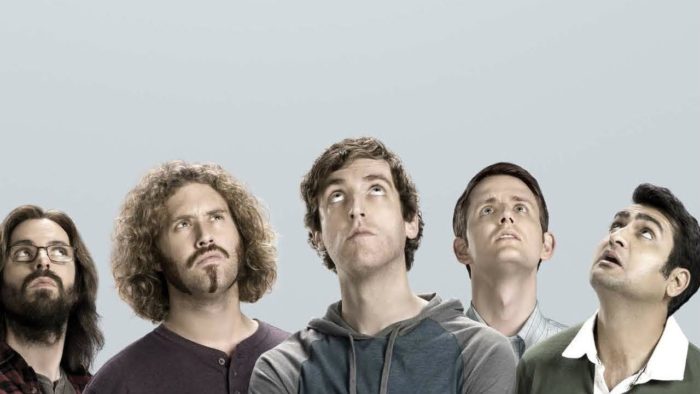
Recently, I’ve heard a lot of people around my age say something to the effect of “Jurassic Park was my Star Wars.” This is an odd thing to say, since we had Star Wars, it was right there, they even put out in theaters again and then made new ones that we were dumb enough to like. But the point, I guess, is that for a bunch of twenty-somethings out there, Jurassic Park is a big fuckin’ deal.
We’re not unique in growing up as dinosaur nerds, but we did get this one movie that seemed like the coolest thing ever. More importantly, it was one we could continue to appreciate as we got older and the debates about ethics and progress started to make more sense to us. It’s for that reason Jurassic Park has remained one of my favorite movies to this day, I get what Malcolm and Grant are so worried about. I understand their passion… I still watch documentary series about dinosaurs of my own free will.
Jurassic World has a lot of affection for Jurassic Park, but it doesn’t understand it the same way I do. It thinks I want to see the T. rex come back and kick ass or see raptors team up with humans, when all I really want are the first 20 minutes or so of this movie. In the beginning we’re shown a working, modern version of the park and it’s everything I ever dreamed! There’s a petting zoo where you can ride around on baby triceratops! That first part is so amazingly realized it’s a real bummer to see how much stupid lies beyond it.
It’s hard to say where Jurassic World takes place in the franchise – we know it’s been years since the first movie but the events of the second and third films aren’t ever addressed, so they may or may not have happened anymore. Anyway, Isla Nublar has reopened as a working theme park/zoo, and apparently has been fully functional for such a long time that people are bored. Bored! Bored of taking a cruise to island, going on rides, and spending time with living dinosaurs. It’s hard to believe and even harder to portray, apparently, because all we see of the island are thousands of happy tourists thrilled to be around dinosaurs. Indeed, the only reason we have to believe anyone is unhappy is because the park’s manager, Claire (Bryce Dallas Howard), tells us so.
To remedy this, Claire had Dr. Wu (B.D. Wong, the only returning character) splice together a new breed of dinosaur by combining all the most dangerous dinosaurs, and some modern beasts, into one. This profoundly stupid idea is made more idiotic by the fact that only Wu, for some reason, knows exactly what went into this new creature, dubbed the Indominus rex. So when the I. rex inevitably breaks out, no one really knows what they’re dealing with and chaos, as always, ensues.
Along for the ride is Owen Grady (Chris Pratt), a super over-the-top, Mister-I’m-always-right action hero. He’s an ex-Navy SEAL who is somehow also the most qualified man in the world to train velociraptors. He works alongside Omar Sy, who is given nothing to do is this movie, and Hoskins (Vincent D’Onofrio), who somehow thinks raptors could someday be used in the military to replace drones. I don’t need to go into this, do I? This is dumb as hell. Military raptors is something everyone should laugh at every time it’s brought up, even a legend like Vincent D’Onofrio can’t make it work.
None of the first three Jurassic Park movies are about killing dinosaurs. All three of those movies respect the fact that these giant lizards are just doing what comes naturally to them, and they wouldn’t be a threat to humans if we didn’t keep fucking with their shit. This is the core idea behind this franchise: the villains aren’t the dinosaurs, it’s always human arrogance. The arrogance that leads us to believe we’re not a part of nature, that we can play god, that we’re better. Jurassic World is the first departure from that, as the plot is literally a monster escaped and we have to kill it. And that makes me uncomfortable.
Yes, the I. rex isn’t technically part of nature in the same way as the other dinosaurs, but it’s still a living creature that the movie wants you to hope gets killed. There’s some other gratuitous violence in this movie that irked me too. One character suffers a truly horrific death, perhaps the most violent in the series, without doing anything to deserve it. When Gennaro suffered his grisly fate in the first movie, we knew he was an asshole lawyer who just abandoned children to try to save himself, this character in Jurassic World didn’t do anything like that.
Ultimately, even if I could let slide my moral objections to Jurassic World, I just couldn’t get over all the painfully moronic parts of this story. It’s a huge letdown from a franchise that has disappointed more with every sequel it’s gotten. Based on the massive opening weekend, I’m guessing this isn’t the last we’ll be seeing of this universe. It’s too bad only now am I realizing how much I think that might be a bad idea. Hopefully the new one will have a cleaner production cycle, with a script that doesn’t have to pass through half a dozen writers over a decade. If not, well, at least we’ve still got Star Wars.











